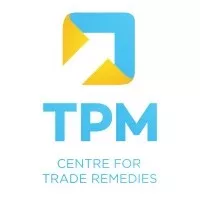- within International Law topic(s)
- in European Union
- within Media, Telecoms, IT, Entertainment, Government and Public Sector topic(s)
Since January 2025, the USA has imposed or enhanced the scope of tariff measures on various imports. While certain measures have been imposed on specific products, certain other measures have been imposed on imports from specific countries. In particular, the USA has enhanced the scope of additional tariffs on imports of steel and aluminium products; and has imposed additional tariffs on imports of automobiles and automobile parts. In response to such measures, various WTO members, including India, have proposed to suspend concessions and other obligations under the WTO Agreement on Safeguards, granted to the USA. However, the USA has now notified the WTO that it would not revoke the measures in question and the proposed suspensions are not legal.
The measures in question (Section 232 tariffs)
Section 232 of the Trade Expansion Act, 1962 authorises the US Secretary of Commerce to conduct appropriate investigation for determining the effect of imports of an article on the national security of the USA. Based on a report by the US Secretary of Commerce, the US President imposed additional tariffs of 25% and 10% respectively on certain Steel and Aluminium products on 8th March 2018. Based on various bilateral agreements and discussions, imports from Argentina, Australia, Brazil, Canada, EU, Japan, Mexico, South Korea and the United Kingdom were exempted from such additional tariffs. However, based on trade trends pursuant to imposition of orders, it was noted that imports from such countries increased significantly. Further, imports of steel and aluminium derivate products also increased substantially. In order to keep such imports in check, on 10th February 2025, the USA enhanced the scope of the additional tariffs to include imports of steel and aluminium products and their derivatives from all sources (Steel and aluminium tariffs)
The US President also imposed additional tariffs of 25% on imports of automobiles and automobile parts, with effect from 3rd April 2025, referred to as auto tariffs. The tariffs were imposed pursuant to report by the US Secretary of Commerce which stated that automobiles and automobile parts were being imported in such quantities and under such circumstances as to threaten to impair the national security of the USA.
Requests for consultations
Following the issuance of orders by the US President, WTO members including India, EU and Japan sought consultations with the USA under Article 12.3 of the Agreement on Safeguards. The said WTO members notified that while the USA has classified Section 232 tariffs as security measures, they are essentially safeguard measures. This allows the WTO members, which have significant export interest, to seek consultations under Article 12.3 of the Agreement to reach an agreement for adequately compensating against the adverse effects of the measures. On 11th April 2025, India notified the WTO of its intention to seek consultations with the USA regarding the steel and aluminium tariffs. The EU sought consultations vide notifications dated 12th March 2025 and 9th May 2025. Similar requests were made by Japan.
Suspension of concessions
On 12th May 2025, India notified the WTO that the proposed consultations had not been undertaken. Accordingly, India would suspend concessions and other obligations with respect to USA, pursuant to Article 8 of the Agreement on Safeguards. In its notification, India mentioned that suspension of concessions would be in the form of increased tariffs on selected products exported from USA. The suspension would come into effect after 30 days from the notification. India reported that Section 232 measures imposed by USA affect Indian exports worth US$ 7.6 billion on which the duty collection would be US$ 1.91 billion. Accordingly, India's proposed suspension would result in an equivalent amount of duty being collected on exports from USA. Similar notifications were filed by the EU and Japan, each of which provided the extent of suspensions proposed.
Response by the USA
The USA responded to the request for consultations by India and other countries and their proposed suspension of concessions, stating that the measures in question were not safeguard measures imposed under Section 201 of the Trade Act, 1974 and were not covered under Article XIX of the GATT and Agreement on Safeguards. Section 232 measures were imposed to keep in check the imports that threatened to impair the national security of the USA. It clarified that Section 232 is a national security statute, and the measures were imposed pursuant to the essential security exception in Article XXI of the GATT 1994.
The USA highlighted that India, and other WTO members, did not acknowledge its offer to discuss the tariffs. Lastly, the USA categorically mentioned that it would not discuss Section 232 measures under the Agreement on Safeguards.
Position of the WTO Panel concerning Section 232 measures
It is important to note that the validity of Section 232 measures was previously discussed before the WTO Panel in United States - Certain Measures on Steel and Aluminium Products [DS 544].1 In the said case, the WTO Panel held that the Agreement on Safeguards is not applicable to the measures at issue, since they were not invoked under the provision relevant to safeguards in the first place. It further held that USA imposed Section 232 measures pursuant to analysis of threat to its national security under Article XXI of GATT 1994.
However, the Panel also noted such measures were not akin to measures taken at the time of war or other emergency in international relations within the meaning of Article XXI(b)(iii) of the GATT. Accordingly, such measures were not valid under the essential security exception under the GATT. Despite the Panel's ruling, the USA refused to withdraw such measures.
The road ahead
Pursuant to refusal by the USA to discuss its Section 232 measures, WTO members, including India, are expected to proceed with suspension of concessions. It may be noted that actions by both, USA and the WTO members, have already been held to be invalid by the WTO Panel. It is now to be seen whether the parties would reach a mutually agreed decision, or measures and countermeasures would be once again challenged before the WTO.
Footnote
The content of this article is intended to provide a general guide to the subject matter. Specialist advice should be sought about your specific circumstances.


